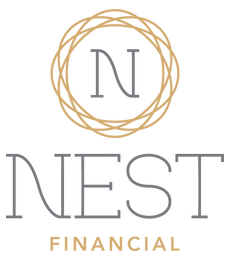“Boomer got the vax?”
You might recognize this phrase from the viral TikTok by the account @oldgays, which features friends Jessay, Mick, Robert, and Bill as they enjoy the golden years of retirement together in Palm Springs. They are stumped by this question until they realize that it means “Baby Boomers got the (Covid-19) vaccine,” and the ensuing back-and-forth about whether or not they qualify as Baby Boomers is (as with all their videos) charming, hilarious, and a little bit chaotic, in the best way.
As we celebrate the LGBTQ+ community this month and remember the 1969 Stonewall Uprising in New York City that inspires the Pride Parades of today, we recognize that many of those early Pride participants are now approaching their 70s.
There are more than 39 million seniors (aged 65+) in the US today, and approximately 2.4 million of that age group identify as LGBTQ+. These Baby Boomers, like the ones we know and love from @oldgays, represent more than 20% of the population, and many are nearing retirement.
With that in mind and our recent discussion about inflation rates in this month’s NEST Edge webinar, we took a look at how inflation affects retirement planning.
An Overview of Inflation
Inflation is an increase in the prices for goods and services. If inflation is high at 10%, then a candy bar that costs $1.00 this year will cost $1.10 next year. In the US, inflation reached an all-time high of 23.70% in June 1920 and a low of -15.80% in June 1921, but the Federal Reserve has a mandated goal to keep inflation around 2% each year.
As Sean explains in this month’s NEST Edge, this year the Bureau of Labor Statistics announced that inflation was 4.2%, which is the highest increase since 2008 and higher than their mandated goal of 2% each year. We’ll leave you to decide whether you trust the Fed to release unbiased and apolitical data, but we will share that if the BLS used the same method for calculating inflation that they did in the 1980s, inflation this year would actually be upwards of 11%.
How Does Inflation Affect Retirement?
Inflation decreases the purchasing power of your money over time. For example, at 3% inflation, $100 today will be worth $67.30 in 20 years – losing ⅓ of its value. While money loses purchasing power, the costs of healthcare, insurance, and long-term care can increase. This is partially because of price pressures due to the increasing demand for long-term care providers and facilities as the influx of Baby Boomers move toward retirement. Meanwhile, long-term care insurance is becoming an increasingly convoluted and complicated service, as companies are petitioning state regulators to increase prices for current policyholders.
A financial advisor can help plan for your retirement, including future caregiver costs, based on data about inflation, your health status, your cost of living, what to expect from Medicare, and your desired retirement lifestyle. They will be able to determine how to produce sufficient cash flow for insurance premiums and other later-in-life costs, whether by repositioning lower yielding investments into higher yielding alternatives, or finding another method that is right for you. There are many scenarios that Gloria and Dan can run based on your needs and wants that will factor in inflation, taxes, long-term care costs, and other complexities.
This kind of nuanced and layered financial planning will help you enjoy the same peaceful, pleasant retirement as the gentlemen behind the @oldgays account, so that instead of fretting about your savings and healthcare, all you’ll have to worry about is how many likes your TikTok got.
DISCLAIMER: We are here to inform you with real, non-bias financial planning education. We are legally obligated to remind you that the information and opinions shared in this post are for educational purposes only and are not investment or financial planning advice. For guidance about your unique goals, drop us a line at info@nestfinancial.net.
Find us on:






[…] is a Roth IRA? What’s a 401(k) versus a SIMPLE 401(k)? Furthermore, how do market events such as inflation affect retirement […]